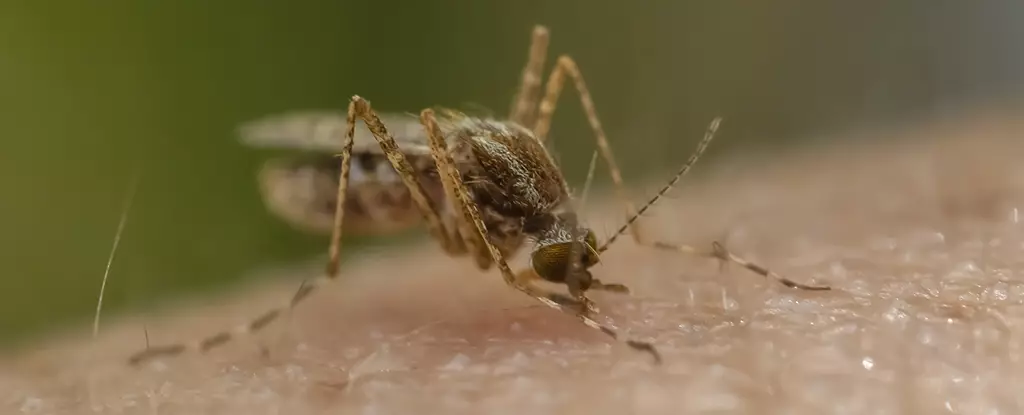Malaria, one of the deadliest diseases in the world, has long been a formidable challenger in the public health arena. Traditionally, mosquitoes have been vilified as the primary vectors transmitting the Plasmodium falciparum parasite, which causes this devastating disease. However, recent research presents a paradigm shift in this narrative, demonstrating how these insects can be harnessed as a vehicle for vaccination rather than merely being agents of infection. A groundbreaking study from researchers in the Netherlands uncovers the potential of a new vaccine that uses genetically modified mosquitoes to deliver an enhanced form of immunization against malaria.
Understanding the Mechanism of the New Vaccine
The innovation explores the use of a weakened version of the Plasmodium falciparum parasite, referred to as GA2. Unlike traditional vaccines that often utilize inactivated or attenuated viruses, the GA2 parasite is genetically modified to suppress its development, thus providing a unique method of eliciting an immune response without causing the disease itself. When administered through a mosquito bite, the GA2 version enters the human liver just as the wild-type parasite does; however, it cannot mature and progress to the bloodstream due to the deactivated genes. This method stands to establish a defense mechanism within the liver, potentially paving the way for stronger immunity against future malaria infections.
A Comparative Analysis of Efficacy
The results from this study starkly highlight the improvement over previous vaccine versions. An impressive eight out of nine young adults, or approximately 89%, who received the GA2 vaccine showcased effective immunity against malaria. In stark contrast, only one out of eight individuals, around 12.5%, was protected with the earlier vaccine variant referred to as GA1. This significant disparity underscores the need for vaccines that effectively bolster the body’s immune system beyond what current solutions offer. The prolonged maturation time of GA2 in comparison to GA1 – nearly a week versus just 24 hours – allows for a more robust immune response as the body has greater time to recognize and counteract the infection.
The immune response triggered by the GA2 vaccine was not only stronger but also more diverse. This enriched immune cocktail enables better defense against malaria, highlighting the importance of both the quantity and variety of immune cells in successfully combating infections. Such findings are critical as they unlock insights into how vaccines can be tailored for even greater effectiveness in preventing diseases. Understanding the underlying mechanisms that contribute to this improved response can guide future vaccine developments not just for malaria, but potentially for other infectious diseases as well.
Despite these promising advancements, malaria continues to pose a grave public health threat, with approximately 250 million cases reported annually and hundreds of thousands of preventable deaths. Current vaccines offer only partial protection for limited durations, which accentuates the urgency for a more efficient solution. While the mosquito bite delivery method may prove effective in clinical settings, it remains impractical for mass distribution to the public. Public health policy must grapple with logistics, safety, and ethical considerations surrounding the use of genetically modified organisms in widespread vaccination campaigns.
The Path Forward
As the researchers behind GA2 assert the efficacy of their vaccine in controlled environments, the question remains: how can this innovative approach be translated into scalable public health strategies? Continuing research efforts must not only refine the vaccine further but also explore ways to address public concerns and potential hesitancies surrounding genetically modified organisms in health applications. The success of GA2 heralds a new chapter in malaria prevention, offering a beacon of hope in the battle against this age-old disease.
While the challenges of malaria are immense, the advances seen in the development of the GA2 vaccine represent a hopeful stride towards a safer, more effective means of protecting vulnerable populations. Ongoing studies and future trials will play an essential role in determining the viability of this approach, shaping the next generation of malaria intervention strategies.

